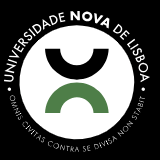Introduction to University of Évora
The University of Évora is a public university with a long history in Portugal. It is located in Évora, the capital and important city of Alentejo Province, and a UNESCO World Heritage City.
Overview
The school offers multidisciplinary courses from undergraduate to doctoral level, covering humanities and social sciences, natural sciences, engineering and technology, agricultural and forestry sciences, art and music, etc. There are currently 10,496 students.
History and establishment time
Founded in 1559 by Cardinal Henry, who was about to succeed the throne of Portugal, it was the second university in Portugal after the University of Coimbra. It was initially managed by the Jesuits. It was closed in 1779 after the Portuguese government expelled the monks. It was reopened in 1973 as the University College of Évora and in 1979, it was renamed the University of Évora. In 2000, it was officially renamed the University of Évora.
School Strength
Teaching Staff: There are many excellent teachers who provide high-quality teaching and guidance for students.
Teaching Facilities: The campus is well-equipped with modern teaching lecture halls, laboratories, a library with more than one million books and a large computer network system.
Scientific Research Achievements: It carries out scientific research projects in many fields, has key research centers such as the Geological Research Center and the Institute of Sustainable Agricultural Development, participates in many EU projects, and establishes close academic cooperation with Latin American and African Portuguese-speaking countries.
Institutional Nature
Public University.
Educational Philosophy
The school motto is "Honesto estudo com longa experiência misturado", which means "Combining honest learning with rich experience", focusing on cultivating students' academic ability and practical experience.
Key laboratories and disciplines
Key disciplines: strong in the fields of humanities and arts and agricultural sciences, such as history, philosophy, sociology, education, environmental science, biology, geology, construction engineering, computer science, new energy research, grape cultivation and winemaking, forest management, musicology, etc.
Key laboratories: equipped with geological research centers, agricultural sustainable development research institutes, etc.
Faculty
The school has four colleges, including the College of Agricultural Science and Technology, the College of Natural Environmental Sciences, the College of Economics and Management, and the College of Social and Human Sciences.
Ranking
It is relatively low-key in international rankings, but it is recognized in Portugal for its high-quality education and scientific research. Its disciplines such as agriculture, humanities and arts rank high.
Expenses
The annual tuition fee for undergraduates is about 5,000-8,000 euros, and the annual tuition fee for masters is about 6,000-10,000 euros. The monthly living expenses (including accommodation) for students are about 600-800 euros.
Campus environment
The main campus is located in a historical building, and iconic buildings such as the University Church integrate a variety of architectural styles. There are also affordable dormitories and a library with a rich collection of books on campus. The school often organizes cultural festivals, academic lectures, concerts and other activities.
-

Vasco da Gama University School
-

Higher Institute of Administration and Languages
-

Polytechnic Institute of Maia
-

Higher School of Nursing, Lisboa
-

Superior Institute of Maia
-

Atlântica University
-

Higher Institute of Education and Science Portugal
-

Polytechnic Institute of Leiria
-

NOVA University Lisbon
-

University of Minho
-

Mesoamerican University
-

Istmo University
-

Mariano Galvez University of Guatemala
-

Regional University of Guatemala
-

Galileo University
-

Francisco Marroquín University
-

Rafael Landívar University
-

University of the Valley of Guatemala
-

University of San Carlos of Guatemala
-

Technological Institute of Tlaxcala Plateau
-

Golfo University
-

Technological University of South Sonora
-

Technological University of Huejotzingo
-

Tizimín Institute of Technology
-

Chilpancingo Institute of Technology

